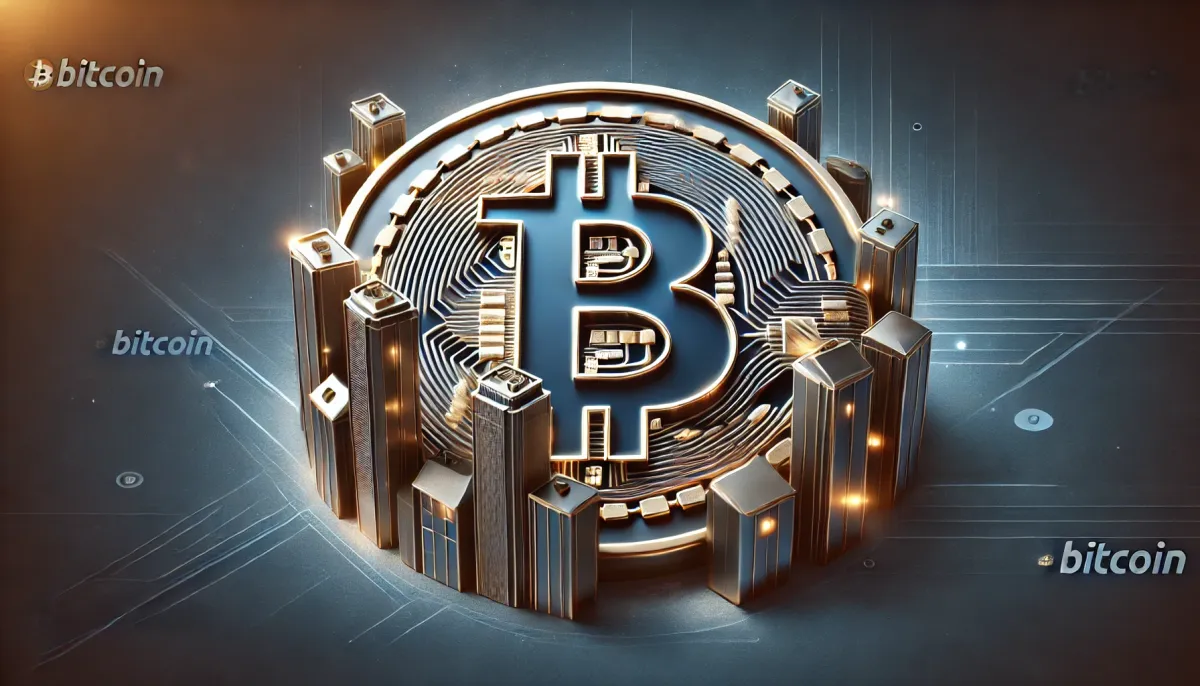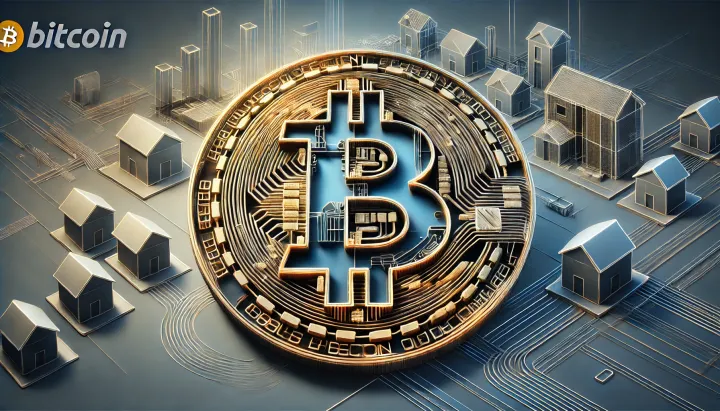From Real Estate to Bitcoin: The New Path to Wealth Preservation and Financial Autonomy
The November 2, 2024 episode of the Rajat Soni podcast features Peter Dunworth discussing why he chose Bitcoin over real estate as a long-term investment, examining Bitcoin’s inflation resistance, decentralized nature, and potential to reshape global wealth.

- My 'briefing notes' summarize the content of podcast episodes; they do not reflect my own views.
- They contain (1) a summary of podcast content, (2) potential information gaps, and (3) some speculative views on wider implications.
- Pay attention to broadcast dates (I often summarize older episodes)
- Some episodes I summarize may be sponsored: don't trust, verify, if the information you are looking for is to be used for decision-making.
Summary
The November 2, 2024 episode of the Rajat Soni podcast features Peter Dunworth discussing Bitcoin’s potential to surpass traditional assets like real estate in wealth preservation and accessibility. This conversation highlights Bitcoin’s unique qualities—scarcity, inflation resistance, and decentralization—as well as its capacity to empower individuals and institutions seeking alternatives to fiat-dependence in an increasingly inflationary economy.
Take-Home Messages
- Bitcoin’s Alternative Role to Real Estate: Dunworth emphasizes Bitcoin’s inflation resistance and long-term value potential as reasons it’s a viable alternative to real estate for wealth preservation.
- Bitcoin’s Triple-Point Asset Nature: Bitcoin functions simultaneously as a store of value, medium of exchange, and unit of account, which positions it uniquely against traditional assets.
- Custody Solutions Are Essential: Secure, collaborative custody models for Bitcoin are crucial, particularly for estate planning and institutional adoption.
- Corporate Adoption Trends: Companies like MicroStrategy are leading the charge in incorporating Bitcoin into their reserves, signifying a shift in corporate asset strategies.
- Need for Regulatory Clarity: The expansion of Bitcoin’s institutional adoption hinges on supportive regulations that respect its decentralized principles.
Overview
This November 2, 2024 episode of November 2, 2024 episode of the Rajat Soni podcast features Peter Dunworth, who discusses Bitcoin's potential as a practical alternative to traditional assets, such as real estate, particularly for those seeking inflation protection and stability in today’s economy. Dunworth details his decision to sell property in favor of Bitcoin, contrasting Bitcoin’s scarcity and decentralized security with the dependency of real estate on credit and debt markets. He positions Bitcoin as a “digital real estate” with broad accessibility, providing long-term wealth preservation opportunities outside of centralized, fiat-driven systems.
A key component of Bitcoin’s appeal is its status as a triple-point asset, capable of acting as a store of value, medium of exchange, and unit of account. This flexibility, along with Bitcoin’s fixed supply and censorship-resistant framework, provides a layer of security that traditional assets often lack, especially in high-inflation environments. By remaining independent of centralized financial systems, Bitcoin empowers users to protect their wealth.
Dunworth further discusses how corporate Bitcoin strategies, such as MicroStrategy’s, influence the perception of Bitcoin as a stable reserve asset. MicroStrategy’s substantial Bitcoin holdings exemplify how corporations can leverage Bitcoin as a treasury reserve, fostering a trend toward decentralized assets in corporate finance. Dunworth advocates for collaborative custody solutions, crucial for both private users and institutions to securely manage and recover Bitcoin holdings.
Finally, he emphasizes the need for educational efforts and regulatory clarity to support Bitcoin’s continued adoption. The lack of awareness around Bitcoin’s capabilities, coupled with restrictive policies, limits its potential reach. If regulators align policies with Bitcoin’s decentralized principles, more individuals and institutions could integrate Bitcoin into their financial strategies, enhancing wealth preservation and financial autonomy.
Stakeholder Perspectives
- Individual Investors: See Bitcoin as a hedge against inflation and a long-term store of value, distinct from real estate or fiat-based assets.
- Institutions: View Bitcoin as a strategic reserve asset but require clear custody protocols and regulatory support to facilitate secure adoption.
- Policy Makers: Weigh Bitcoin’s decentralized nature with the need for regulatory oversight, balancing innovation with systemic stability.
- Real Estate Investors: May see Bitcoin’s appeal to younger generations as a potential threat to traditional real estate investment.
Implications
Dunworth’s insights suggest a shift in wealth preservation strategies as inflation and fiat devaluation affect traditional assets. Bitcoin’s fixed supply and decentralized nature provide a compelling alternative, especially as younger generations adopt it as a store of value.
Bitcoin’s potential for global wealth democratization could disrupt traditional wealth management. With the growth of collaborative custody solutions and increased corporate adoption, Bitcoin stands to reshape personal and institutional finance. Policymakers may need to adjust regulations to support this shift, facilitating Bitcoin’s role as a secure, inflation-resistant asset that complements or even replaces certain traditional reserves.
Future Outlook
Bitcoin’s role in global finance could expand substantially as individuals and corporations increasingly adopt it as a store of value. Collaborative custody solutions will be instrumental in broadening Bitcoin’s accessibility, ensuring that both institutional and individual investors can maintain secure ownership.
Generational investment shifts suggest that Bitcoin may become a prominent fixture in personal wealth strategies, potentially impacting real estate valuations as more people choose Bitcoin for asset preservation. Policymakers face the challenge of creating supportive frameworks that integrate Bitcoin into the financial landscape without compromising its independence. If managed well, these frameworks could solidify Bitcoin’s role as a globally recognized, secure asset.
Information Gaps
- How will shifting generational preferences toward Bitcoin impact traditional real estate valuations in the long term? Understanding this potential shift is vital, as it could alter capital flows across asset classes, with implications for real estate markets and investment planning.
- What specific regulatory changes could facilitate institutional investment in Bitcoin without compromising financial stability? Identifying regulatory approaches that promote institutional Bitcoin adoption without undermining stability is critical for aligning decentralized assets with traditional systems.
- How might Bitcoin adoption impact inflation rates and monetary policy in high-debt economies? Bitcoin’s role as a decentralized asset could influence inflation control and fiscal policies, especially in economies facing severe debt burdens.
- What are the most effective strategies to improve global Bitcoin literacy and reduce information asymmetry? Education is a barrier to Bitcoin adoption. Determining effective literacy strategies could expand understanding and support broader, sustainable integration.
- How could the introduction of fractional reserve practices affect Bitcoin’s perceived scarcity and value? Fractional reserve practices could alter Bitcoin’s scarcity perception, presenting risks to its value stability. Researching these impacts is essential to understanding Bitcoin’s future stability.
Broader Implications
Bitcoin as a Global Asset for Wealth Preservation
Bitcoin’s inflation-resistant structure presents it as a global alternative to traditional assets like real estate, especially for those impacted by fiat devaluation. As younger generations and debt-heavy economies explore Bitcoin for wealth preservation, a shift may occur from physical assets to decentralized digital holdings.
Corporate Treasury and Institutional Adoption Trends
MicroStrategy’s approach to Bitcoin reserves suggests a blueprint for corporations considering Bitcoin as a treasury asset, potentially increasing its integration in corporate finance. As companies prioritize inflation-resistant assets, Bitcoin could establish itself as a standard reserve, influencing treasury practices and portfolio diversification in high-inflation contexts.
Implications of Bitcoin Lending and Fractional Reserves
The potential for Bitcoin-backed loans introduces a new dimension to digital asset lending, but fractional reserves could disrupt Bitcoin’s scarcity model, affecting market stability. For lending systems built on Bitcoin, effective regulation is crucial to balance lending expansion with asset security. If well-implemented, these financial instruments could deepen Bitcoin’s utility, attracting broader market participation but must be carefully managed to preserve Bitcoin’s value and user trust.
Financial Inclusion and Wealth Redistribution
Bitcoin’s decentralized framework promotes financial inclusion by offering a wealth preservation tool accessible beyond traditional banking systems. As Bitcoin adoption grows, it may empower financially marginalized communities, shifting wealth concentration and challenging conventional power structures.



Comments ()